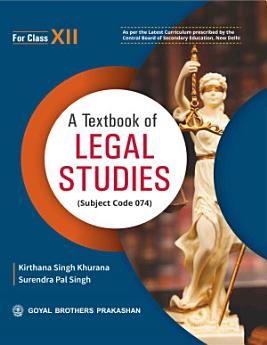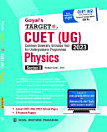A Textbook of Legal Studies for Class XII
About this ebook
In the last few decades, India has not only showcased itself as the world’s
largest democracy but also exhibited the resilience of its institutions and the
fortitude of its governance benchmarks. As India pursues a leadership position
in the world community, the need for a rule-of-law society has become a
necessary pre-condition. A compliant and law-abiding citizenry alone can
build the requisite ecosystem for a nation to surge ahead. This calls for a
greater legal literacy amongst its masses to enhance their understanding of
public affairs as well their entitlements and duties as citizens. In the long
run, this can also potentially eradicate the ethics deficit in society.
Structured training in law not only helps the youth challenge their thought
process and nurture analytical and negotiation skills but also prepares them
for myriad opportunities and exciting career options. No wonder, in the last
few years, apart from offering the traditional career in litigation, the law
has established itself into fields like public service, academics, research,
public policy, journalism, and various other emerging streams. To cater to
this burgeoning demand for trained legal professionals, India has seen a
tremendous growth of institutions like the National Law Universities and
many private universities offering law courses, in addition to the expansion
of the existing facilities.
Central Board of Secondary Education’s decision to introduce ‘Legal Studies’
as an elective subject, in the year 2013-14 for the Class XI students and
in the year 2014-15 for the Class XII students, could not have come at a
better time. It is a testimony to the realisation that the introduction of an
important subject like Legal Studies at an early stage can do wonders for
the students who plan a career in the field of law. Even for those who may
pursue other careers, their intellectual strength and the problem-solving
abilities will be enhanced though the study of law.
This book is a humble attempt to make a student’s first interface with the
law as a subject an elevating experience. Care has been taken to make the
presentation of the text simple and reader-friendly. The various units of
the book, while meeting the requirements of the prescribed syllabus, offer
comprehensive coverage of the aspects of law that have been covered.
Important legal terms have been meticulously explained with examples to
help the students develop a clear understanding about them. All relevant
cases have been duly cited, and it has been ensured that the text comprises
the latest information about the incorporated content.
PREFACE
Authors are confident that the book shall be extremely useful for the students
of Class XII in developing a clear understanding of the various critical facets
of law. They can also benefit immensely from the tips given by the authors
for preparing for the examinations and scoring well. The book also has the
potential to become a foundational text in the hands of those seeking a basic
understanding of the Indian legal system.
Our sincere thanks to Dr. B.L. Babel, retired District and Sessions Judge
and an acclaimed author of innumerable law books, and Dr. Anil Kaushik,
former Dean, Faculty of Law, M.G.S. University, Bikaner, and presently,
Principal, S.D. Law (P.G.) College, Sri Ganganagar, Rajasthan, for guiding
us in the development of the text. Special thanks to Mr. Sanjay Sardana and
Mr. Sankalp Sardana of the Manav Mangal Group of Schools for helping
us develop a perspective about the students’ expectations from the book.
We would like to express our deep gratitude to Prof. Ramesh Arora and
Mrs. Priyanka Sapra for their mentoring and consistent motivation in all
our endeavours.
We are deeply indebted to the publishers, Goyal Brothers Prakashan,
particularly Mr. Suresh Goyal and his dedicated team for making this book
a reality despite all the impediments posed by the pandemic. Their efforts
in enhancing the presentation of the book are sincerely acknowledged.
The authors shall also like to register their profound appreciation for the
outstanding academic and research environment at the O.P. Jindal Global
University, Sonipat, which helped in the conception and development of
this book. In particular, the suggestions from a few students turned out to
be invaluable in the development of this work, for which the authors shall
remain indebted.
Human efforts, howsoever ingenuous, are at best attempts seeking excellence
and are liable to suffer from infirmities. We look forward to the feedback
from our readers and shall be ever so keen to learn from their views and
acknowledge the same appropriately.
Last but by no reckoning the least, the authors would like to thank all their
friends and family members profusely for their encouragement and constant
support.








